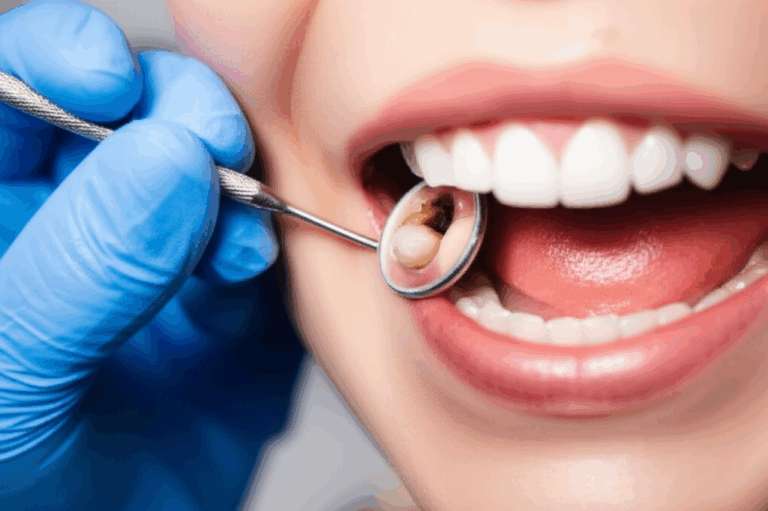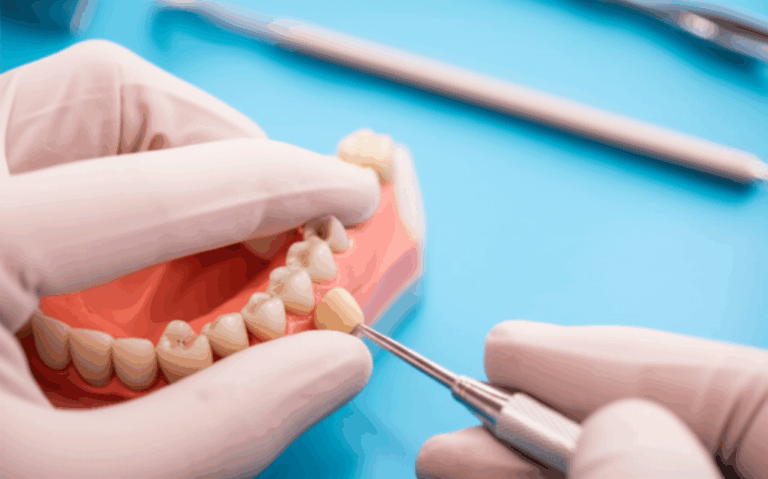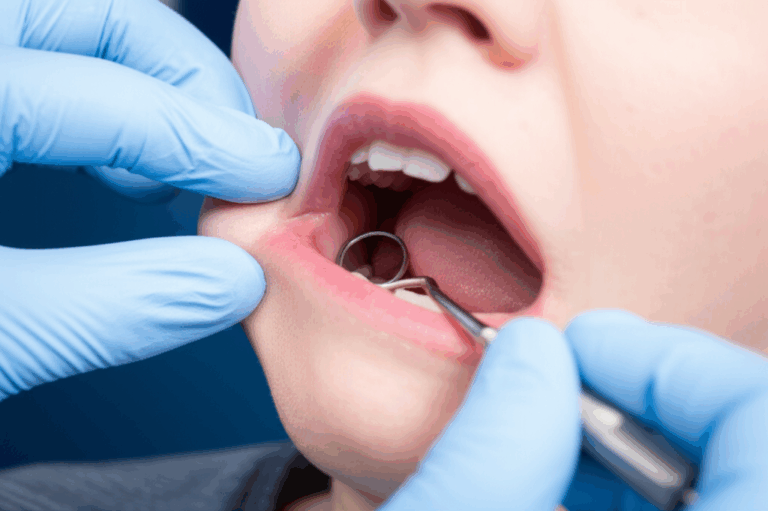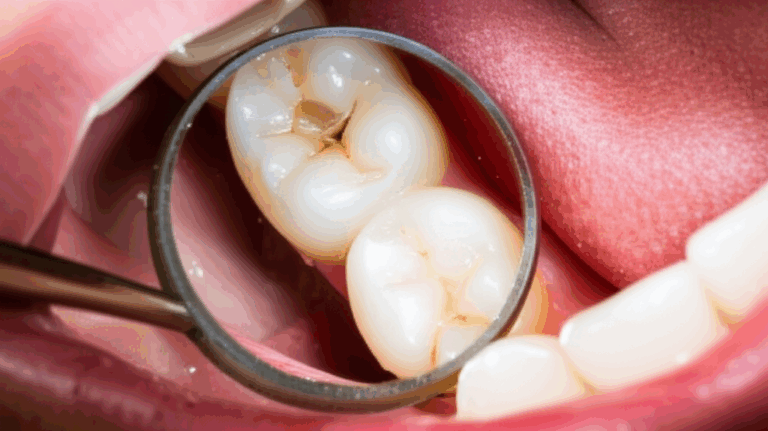
Can a Dentist Diagnose Strep Throat? Understanding Their Role in Oral & Systemic Health
Table of Contents
Introduction: My Experience With Sore Throat and the Dental Chair
The first time I wondered if my dentist could figure out strep throat, I was sitting in that dentist’s chair with a sore throat that just wouldn’t leave. My teeth hurt, my gums felt angry, and my mouth felt like it was hiding some secrets. I asked myself, “Can my dentist tell what’s wrong with my throat, too?” If you’ve ever had a sore throat right when a dental visit comes up, you probably thought about this, too.
In my own life, dentists are careful. They don’t only check teeth—they look at everything they can see in your mouth. But when it comes to saying you have strep throat, it’s a bit trickier. Dentists can spot signs, but there’s a big difference between noticing things and making an official diagnosis. Let me share what I learned about what dentists and doctors do when it comes to strep throat.
What a Dentist Can See: Oral Signs of Strep Throat
Dentists spend their days looking at mouths. They know what trouble looks like, sometimes even before you feel bad. When I told my dentist my throat hurt during a regular check, my dentist took a good look—not just at my teeth, but my tongue and tonsils too.
What Dentists Notice During an Exam
Here’s what dentists sometimes see in people who might have strep throat:
- Red and swollen throat in the back of the mouth and on the tonsils.
- White patches or pus on the tonsils—a classic sign that always makes me feel queasy just to look at.
- Big, swollen tonsils, sometimes so big they almost touch each other.
- Small red spots (petechiae) on the roof of the mouth, mainly the soft part in the back.
- A tongue that looks kind of like a strawberry—red and bumpy (never wanted that, but now I know the sign).
These things aren’t just in medical books. I’ve seen these signs in real life—kids often show up with huge, red tonsils and spots that are hard to miss.
Symptoms Dentists Might Ask About
Dentists aren’t just looking—they’re asking questions, too. If you say you have:
- A really bad sore throat that started suddenly
- Trouble swallowing your food or water
- Swollen, sore glands in your neck
- A fever (either checked at home or told to your dentist)
Your dentist will want to know more. One time, my dentist saw the white spots and right away started asking about my symptoms. It made a big difference in what happened next.
Where a Dental Diagnosis Stops: Why You Need a Medical Doctor
So, your dentist sees things that just aren’t normal. Maybe you have all the signs of strep. Here’s what happens next.
Limits of Looking in the Mouth
Dentists can tell when something is wrong, but they can’t say for sure it’s strep throat. Here’s why:
- To know if it’s really strep throat, you need a special test.
- Even the best dentist can’t just look at your throat and be 100% sure it’s strep. Other illnesses can look the same.
This is a good thing—it stops people from taking medicine they don’t need or missing another health problem that needs different care.
The Strep Test and Throat Swab
If you really want a clear answer, you need a strep test or a throat swab. Only medical folks—doctors, nurse practitioners, or sometimes at urgent care—do these tests.
- They use a swab to brush your throat. The quick test tells you fast. The longer throat culture takes longer but is more certain.
- Dentists don’t usually have these tests. It’s kind of like how a china dental lab only fixes teeth—no blood pressure or sickness tests here.
Telling Strep From Other Sicknesses
Strep throat can look like:
- A virus (like a cold or the flu)
- Mononucleosis (mono)
- Tonsillitis that’s not strep
- Oral thrush
Doctors use the test to know the real cause. I once guessed I had strep, but it turned out to be the flu. Symptoms alone can fool you.
What If My Dentist Thinks I Have Strep Throat?
So, you’re in the dentist’s chair and your dentist sees something that worries them. What happens?
Referral and Why It Matters
When my dentist saw clear signs of strep, I got sent right away to my family doctor. Here’s why this is smart:
- Strep throat can cause big problems if you don’t treat it, like fever or even trouble with your kidneys.
- Getting help quick means you get better faster—and you’re less likely to make others sick.
My dentist said, as many do, that antibiotics are not for everything. Only take them when you really need them. That helps keep all of us safe from germs that get too strong for normal medicine.
Why Seeing a Doctor Fast is Important
Every day matters. If you don’t treat strep, you can end up with:
- Scarlet fever (a rash after strep)
- Rheumatic fever, which can hurt your heart
- Kidney problems
- Swollen, sore pockets near your tonsils
What I learned: follow the referral. Dentists spot the problem, doctors test to be sure and treat it.
When to See a Dentist vs. a Medical Doctor
If you’re like me, you like a clear answer. Here it is:
- Go to a dentist if you’re worried about tooth pain, gum trouble, or odd spots in your mouth, but you don’t have a sore throat and fever.
- Go to a medical doctor or urgent care if you have:
- A high fever that starts quickly
- Really hard time swallowing
- Swollen neck glands
- Red, big tonsils (sometimes with white stuff)
- A rash
- Body aches
I used to ask my dentist about everything. Turns out, dentists take care of teeth, but doctors need to help you when it comes to infections like strep.
How Dentists and Doctors Work Together
Dentists and medical folks are really a team, even if you don’t notice it right away. Once, when I had a sore throat at the dentist, my dentist wrote it down and sent me to the doctor. This way, everyone works together to keep you healthy.
This teamwork is important, especially when mouth problems show up before you notice anything else. Dentists can spot trouble you didn’t see, then point you where you need to go. If you have things like a denture or a retainer, seeing someone at a removable denture lab or a dental lab for retainers helps keep your mouth good, making it easier for the dentist to see what’s going on.
It’s kind of like a relay race—dentists pass the stick to doctors. They don’t run the whole race by themselves.
What I’ve Learned: Main Points
From my own story, I learned to go along with the system—and to respect what each person does best.
Answers to Common Questions
Can my dentist give me antibiotics for a sore throat?
Dentists can write a prescription for antibiotics if it’s a tooth or gum problem. But for sore throats (like strep throat), they won’t—unless they know it’s tied to a dental issue. For real strep, it’s the doctor’s job.
Can a dentist do a strep test?
Not usually. Most dental offices don’t have the quick strep tests or throat swabs. Those are in medical offices, not dental ones.
What if I’m already at the dental office and have symptoms of strep?
My dentist once saw big signs of strep throat during my checkup and right away sent me to my doctor. He told me what to watch out for, but the real test came from the doctor.
Can keeping my mouth clean help stop strep?
Taking care of your mouth is always smart. Brushing and flossing won’t stop strep, but it helps avoid other problems. Dentists know your whole body matters—so they pay attention if you show up with a fever, swollen glands, and a bad sore throat.
Can strep throat make my teeth hurt?
It can. Swollen glands, pain that spreads, and sore tissues can feel like tooth pain. That’s why it helps to see both your dentist and doctor if you can’t tell where the pain is from.
Summary: Dentists as Watchers, Doctors as Testers
Looking back at my own sore throats, dentist visits, doctor referrals, and that cotton swab—it’s clear:
- Dentists are important for spotting the first signs of illness in the mouth, including strep. They’re kind of like your first safety check.
- Doctors make the real call with tests. They treat you and help keep trouble away down the road.
Now, any time I get a bad sore throat, I remember what my dentist showed me: listen to the experts, respect what each one does, and don’t miss seeing the doctor if you really need to.
So next time you’re at the dentist with a scratchy throat, remember: Dentists are great watchers, but doctors do the testing. Take their advice. You—and your body—will be glad you did.
Stay healthy, keep your teeth clean, and trust both your dentist and doctor when you notice something isn’t right. Both are key for your best health.








